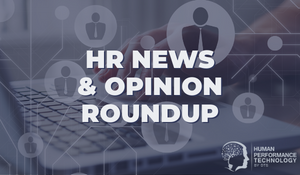DISC Myth: Only High Ds Can Lead
DISC is a popular profiling tool and a method for analysing behaviour that has been in use for many decades and in more than 90 countries, backed by a number of rigorous scientific validation studies.
A trusted and time-tested development tool, DISC has also been successfully deployed in selection and recruitment. It is a methodology with wide acceptance in the market and recognition of its usefulness and quality by numerous professionals.
However, it is necessary to take care. Despite its wide scope of application and good reputation, people should not treat DISC as the only source of information to decide whether or not a person has the potential to lead (or play any other role), especially when it is assumed that, for all positions in all companies, all leaders should have high Dominance. It is not uncommon to find professionals who work in the space of talent selection who believe that, in order to be a leader, it is necessary to have a high D style, even placing this factor as a non-negotiable in a selection or promotion process.
Let us briefly recall some concepts about the DISC factors.
Factors D and C are task-oriented or things-oriented, while I and S factors are people-oriented or relationship-oriented.
Factors D and C tend to be more direct and can (especially if their emotional intelligence is low) come across as harsh, abrasive, and may struggle to deal with the feelings and emotions of others, which can greatly harm a team's productivity and culture.
By seeing people as things or just another resource at their service, people who score high on the D scale may present the following limitations:
- Not knowing how — or especially when — to listen.
- Quick to anger.
- Not agreeing to anything that will make them appear weak.
- Team members not wanting to share bad news for fear of backlash.
- A tendency to ruffle feathers, challenge others, and create conflict (deliberately or unintentionally).
- Discounting the fears and frustrations in the people around them. (A “tough love” attitude.)
- A tendency to prioritise their own interests and needs over others.
- Their difficulty in building close and positive relationships might harm the team and workplace culture.
On the flip side of these possible limitations, people who are high in Dominance also bring to the table a number of potential strengths or positive characteristics that they can add in the exercise of leadership, such as:
- Ambitious goal setting.
- Fast implementation of changes.
- Courage to face unfavourable moments or markets.
- Ability to get right to the point.
- Speed up the solution to a problem.
- Competitive in all areas.
- Persistent in the pursuit of victory.
- Motivated by challenges (the harder, the better).
The behavioural characteristics above may be essential for those who are in some (not all) leadership positions, but note that nothing in the above list relates to people or relationships, which are central to the domain of leadership.
A DISC report, when used to analyse a person's leadership potential (DISC measures tendencies, not skills or delivery capability), should be viewed as one source of information, in service and in alignment with other variables. Below you will find some other important leadership variables:
- The stage of the company (startup, growth, fall, bankruptcy, stable, etc.).
- Legal status of the company (state, private, mixed, NGO).
- Industry (agribusiness, services, technology, wholesale, retail, industry, etc.).
- Family business, multinational or national capital.
- Company turnover and number of employees.
- Number of people on the team.
- Profile of subordinates, peers and superiors.
- Department.
- Company organisation chart.
- Type of product and market.
- Customer profile.
- The business strategy.
- Etc.
DISC is a neutral theory (no right or wrong answer, no best or worst graph). DISC measures only one dimension among many that are relevant to anyone in a position of leadership. The most fundamental point in this discussion is to not just look at others through a limited perspective, or depend solely on a single tool to replace human judgement, but rather to look at others in a holistic or multi-dimensional sense, considering (in addition to the aforementioned variables) key things such as an individual’s life and professional experience, academic training, technical knowledge, emotional intelligence and values, just to mention a few more.
About the Author
Alexandre Ribas has been an entrepreneur since 1998 when he opened his first company. He currently runs four companies, in addition to being a member of the Advisory Council of TTI Success Insights, a company based in Scottsdale, Arizona in the USA. He is also a member of the Robert Hartman Institute in the USA. He started his work with assessment tools in 1994 and consulting projects in 1996. Since that time, he has authored hundreds of articles and published three books.
This article originally appeared on LinkedIn and has been translated, edited and republished with permission of the author, Alexandre Ribas of TTI Success Insights Brazil.
Guest Author
Occasionally we invite guest authors to share fresh content and ideas in our Knowledge Centre. Each post has a unique "About the Author" section so that you can learn more about each contributor.


/the%20top%2010%20%20best%20hr%20articles%20%26%20videos.png?width=374&name=the%20top%2010%20%20best%20hr%20articles%20%26%20videos.png)
We Would Like to Hear From You (0 Comments)